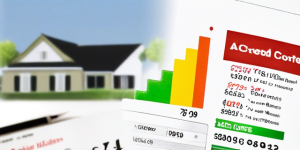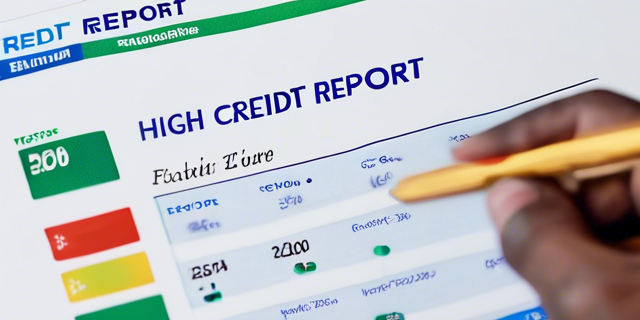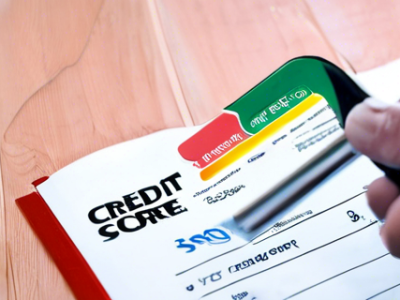How to Improve Your Credit Score for a Mortgage 2024

Are you dreaming of owning your own home but worried that your credit score might not be up to par? Don’t fret, my friend! Improving your credit score for a mortgage is a journey, but with the right strategies and determination, you can boost those numbers and make your homeownership dreams a reality.
The Importance of a Good Credit Score
Before we dive into the nitty-gritty, let me ask you a question: why is a good credit score so crucial when it comes to obtaining a mortgage? Well, my dear reader, your credit score is like a report card that lenders use to evaluate your creditworthiness. A higher score tells them that you’re a responsible borrower who is likely to repay your loans on time, while a lower score raises red flags.
Lenders want to minimize their risk, and a strong credit score gives them the confidence they need to offer you better interest rates and loan terms. Trust me; a few points can make a massive difference in how much you’ll pay over the life of your mortgage.
Understanding Your Credit Score

Now, let’s demystify this credit score business. Your credit score typically ranges from 300 to 850, with higher numbers indicating a better credit history. Generally, a score of 700 or above is considered good, while a score above 760 is excellent.
But what factors determine your score? Well, buckle up because it’s a bit of a rollercoaster ride. Your payment history (35% of your score), amount of debt (30%), length of credit history (15%), types of credit (10%), and new credit inquiries (10%) all play a role.
Checking Your Credit Report
Before you can start improving your credit score, you need to know where you stand. That’s why it’s essential to obtain a copy of your credit report from the three major credit bureaus: Experian, Equifax, and TransUnion. You can get a free report from each bureau once a year at AnnualCreditReport.com.
Comb through those reports like a detective, looking for any errors or inaccuracies that could be dragging down your score. If you find any, dispute them immediately with the credit bureaus. It’s your right to have accurate information on your report, and fixing mistakes can give your score a nice boost.
Paying Down Debt

One of the most effective ways to improve your credit score is to tackle your debt head-on. Lenders love to see a low debt-to-income ratio, which shows that you’re not overextended. But how do you go about paying down debt? Here are a few strategies:
- Prioritize high-interest debt: Credit card balances with sky-high interest rates can quickly spiral out of control. Focus on paying off those debts first to save money and improve your credit utilization ratio (the amount of credit you’re using compared to your credit limits).
- Negotiate better rates: Don’t be afraid to pick up the phone and negotiate with your creditors. They may be willing to lower your interest rates or set up a more manageable payment plan, especially if you’ve been a reliable customer.
- Consolidate your debt: If you have multiple debts with varying interest rates, consider consolidating them into a single loan with a lower interest rate. This can make repayment more manageable and potentially save you money in the long run.
- Seek professional help: If your debt situation feels overwhelming, don’t hesitate to seek help from a reputable credit counseling agency. They can help you develop a personalized debt management plan and even negotiate with creditors on your behalf.
Building Positive Credit History
While paying down debt is crucial, you also need to build a positive credit history to boost your score. Here’s how you can do that:
- Make payments on time: Late or missed payments can do serious damage to your credit score. Set up automatic payments or payment reminders to ensure that you never miss a due date.
- Keep credit card balances low: Ideally, you want to keep your credit utilization ratio below 30%. This demonstrates that you’re using credit responsibly and not maxing out your cards.
- Become an authorized user: If you have a family member or friend with a long, positive credit history, ask them to add you as an authorized user on one of their credit cards. This can help establish credit history for you and improve your score.
- Apply for a secured credit card: If you’re starting from scratch or have had credit issues in the past, a secured credit card can be a great way to build or rebuild your credit. You’ll need to put down a refundable security deposit, but making on-time payments can help boost your score.
Monitoring Your Progress
Rome wasn’t built in a day, and neither is a stellar credit score. Improving your credit takes time and consistency, so it’s essential to monitor your progress regularly. Here’s how you can do that:
- Check your credit reports periodically: Keep an eye on your credit reports from all three bureaus to ensure that your efforts are paying off and that no new errors or inaccuracies have crept in.
- Use credit monitoring services: Many companies offer credit monitoring services that can alert you to changes in your credit report and score. This can be a convenient way to stay on top of your progress without having to check your reports manually.
- Be patient and persistent: Remember, improving your credit score is a marathon, not a sprint. Stick to your plan, and trust that your hard work will pay off in the long run.
Other Tips for Improving Your Credit Score

While paying down debt, building positive credit history, and monitoring your progress are the main pillars of credit score improvement, there are a few other tips that can help you along the way:
- Limit hard inquiries: Each time you apply for new credit, the lender will perform a hard inquiry on your credit report, which can temporarily lower your score. Limit these inquiries to only when you absolutely need new credit.
- Avoid closing old accounts: Closing old credit accounts can negatively impact your credit history length and credit utilization ratio. It’s generally better to keep them open, even if you’re not using them actively.
- Consider credit counseling: If you’re struggling with debt or have a particularly complex credit situation, seeking guidance from a reputable credit counseling agency can be invaluable.
Conclusion
Improving your credit score for a mortgage might seem like a daunting task, but with dedication and the right strategies, it’s absolutely achievable. Remember, a higher credit score not only increases your chances of being approved for a mortgage but also gives you access to better interest rates and loan terms, potentially saving you thousands of dollars over the life of your loan.
So, take a deep breath, roll up your sleeves, and get to work. Pay down debt, build positive credit history, monitor your progress, and don’t be afraid to seek help when you need it. Before you know it, you’ll be holding the keys to your dream home, all thanks to your hard work and a stellar credit score.
FAQs
- How long does it take to improve your credit score? The time it takes to improve your credit score can vary depending on your current situation and the steps you take. Generally, you can see significant improvements within 6 to 12 months of consistently practicing good credit habits, but it may take longer if you have more serious credit issues to address.
- What is the minimum credit score needed for a mortgage? While there is no universal minimum credit score requirement for a mortgage, most lenders prefer to see a score of at least 620 for conventional loans and 500-580 for FHA loans. However, higher scores will typically qualify you for better interest rates and loan terms.
- Can I get a mortgage with a credit score below 620? It is possible to get a mortgage with a credit score below 620, but your options may be more limited, and you may have to explore alternative lending options such as FHA loans, VA loans, or subprime lenders. However, these loans often come with higher interest rates and stricter requirements.
- How often should I check my credit report? It’s generally recommended to check your credit report from all three major credit bureaus (Experian, Equifax, and TransUnion) at least once a year. This will allow you to identify and dispute any errors or inaccuracies that could be negatively impacting your credit score.
- Can closing unused credit cards improve my credit score? Closing unused credit cards can actually hurt your credit score in some cases. This is because closing accounts can decrease your overall credit limit and increase your credit utilization ratio, which is a significant factor in determining your credit score. It’s generally better to keep unused accounts open and active, even if you’re not using them regularly.









